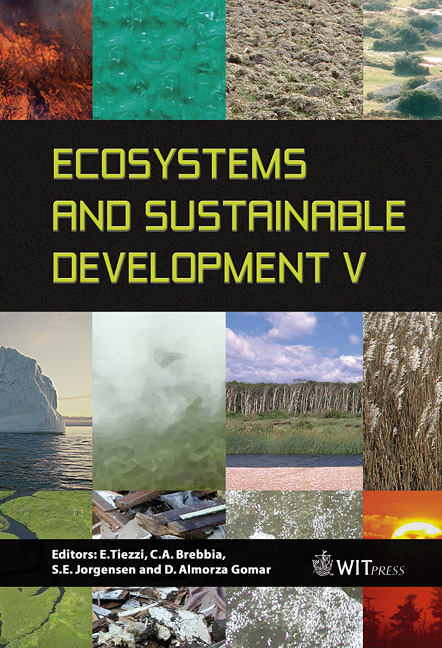Learning From Jonglei – Enough Compromises On Our Ecosystems!
Price
Free (open access)
Transaction
Volume
81
Pages
10
Published
2005
Size
4,623 kb
Paper DOI
10.2495/ECO050471
Copyright
WIT Press
Author(s)
A. Mustafa Ahmad
Abstract
The Jonglei Canal Project in southern Sudan was planned to by-pass and thus drain part of the wetlands of the Bahr al-Jabal and Bahr az-Zaraf Rivers into the White Nile. While this will increase the Nile waters flowing northwards it will most probably have negative side effects on the local, and maybe the regional, environment, the benefits shared between Egypt and the Sudan and the probable damage falling on the already crippled southern Sudan. Harmful effects of government projects are rarely granted full, objective presentation in the Arab world and this is doubly harmful in countries like the Sudan where they escalate into other related evils, in this case warming and desert creep. The canal project, launched in 1978 and brought to a halt through armed force by rebels in 1984, has played a prominent role in the Sudanese political events of the past two decades which have at long last given way to the peace agreements of January 2005. This paper tries to outline the nature of the project, the peculiar Sudanese-Egyptian disputes in action, the advantages and possible hazards of the project and recommends that the region be developed in a manner that regards the wetlands as a valuable resource and protects the ecosystem from threats of destabilisation. Keywords: conservation and management of ecological areas, environmental risk, natural resources management, water disputes. 1 Introduction The title of this conference ‘Ecosystems and Sustainable Development’ brings to mind three retarded regions in the Sudan that demand urgent attention and action. The first is the Jonglei wetlands in the south; the second is the advancing desert belt now embracing the national capital, Khartoum; the third is Lake Nubia on the northern border created by the erection of the High Dam in
Keywords
conservation and management of ecological areas, environmental risk, natural resources management, water disputes.





